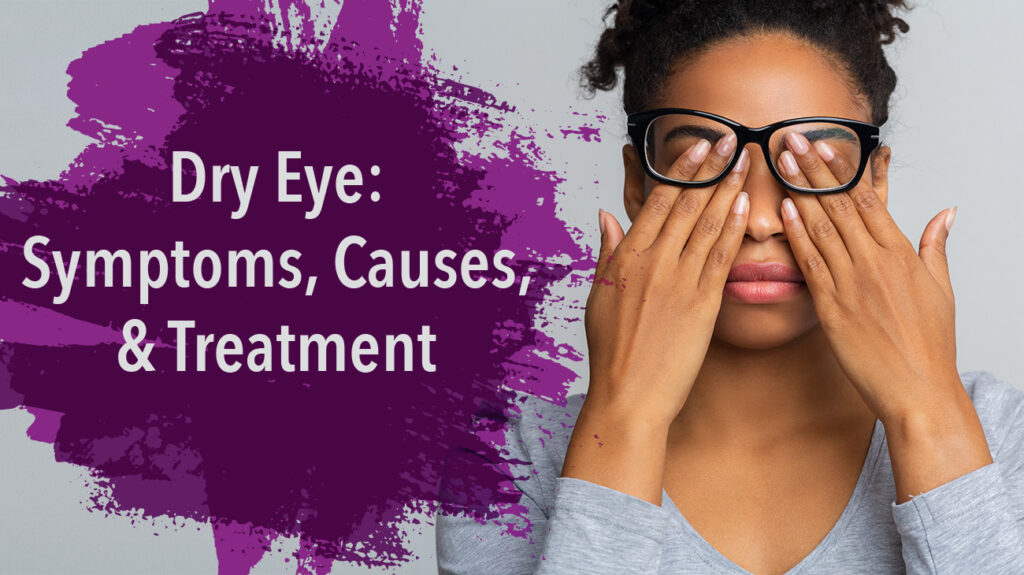What Is Dry Eye?
A continued lack of lubrication and moisture within the eye causes symptoms categorized as dry eye syndrome. The lack of tears and moisture to keep the surface of the eye lubricated, as well as wash away debris and dust, can cause eye discomfort and affect your vision.
Symptoms
- Burning
- Itchy
- Aching
- Heavy
- Fatigued
- Sore
- Dryness
- Red eyes
- Light sensitivity
- Blurry vision
Causes
Symptoms like dry, itchy eyes occur when there is an issue with a component of your tears. The three components that make up your tears are oil, water, and mucin. Issues with these components like tear instability, tear film evaporation, or insufficient tear production, can be the cause of your symptoms. To help detect the cause of your dry eyes, schedule an exam today!
There are certain factors that can increase your risk for symptoms. These factors include:
- Screen use: Humans blink less often when working on screens like computers or phones, causing a higher level of tear evaporation.
- Smoking: Smoking can cause your eyes to dry over time and puts you at a higher risk for other eye-related diseases.
- Aging: The natural aging of your eye can cause your eyes to become dryer and is common in individuals over 50.
- Health conditions & Medications: Certain diseases and medicines can lead to the development of dry eyes.
Dry Eye Treatment
The only way to fully diagnose chronic dry eye syndrome and determine its cause is through a comprehensive eye exam. If you are showing symptoms, schedule an appointment with our office! During your appointment, we will review your symptoms and discuss treatment options for relief!
Treatment options may include:
- Adding of tears through lubricating eye drops.
- Increasing the time your tears stay in your eye by blocking your tear ducts.
- Determining and removing the reason for your symptoms if caused by a medication or environmental reason.
- Introduction of practices to reduce symptoms and prevent further symptoms like remembering to blink during long screen use.



